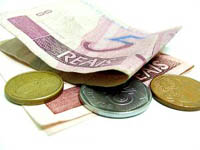While Brazil may not be among the most popular shopping destinations in the world, the number and variety of shopping spots available in the country will come as a pleasant surprise to expats and tourists. Some of the top boutiques are located in the cities like Sao Paulo and Rio de Janeiro, while Salvador is the place to go for great bargains. You can find everything here in Brazil, from jewelry and clothes to leather products and crafts. Even the smaller cities and towns have busy markets that sell regional goods.
São Paulo
From local handicrafts to international boutiques, you can find it all in São Paulo.The tree-lined street called Rua Oscar Freire in the Jardins district has many national and international boutiques. Some of the best Brazilian fashion can be found here. There are also high-end jewelry stores and gourmet food shops. Restaurants specializing in traditional and international cuisine provide a relaxing break from hectic shopping. Rua 25 de Março in São Paulo’s downtown area, Centro, has small stores and markets that offer inexpensive products like small gadgets, textiles and toys. The streets can be crowded here and shoppers should keep an eye on their belongings. São Paulo also has some highly sophisticated malls with high-fashion boutiques and fine dining restaurants.
These include Shopping Morumbi, which also houses a gym with an outdoor track; Shopping Pátio Higienópolis, which has a mix of designer brands and low-end retailers; and the multi-brand boutique department store, Daslu, which is often referred to as the “fashion designers mecca” of Brazil.
Most stores in São Paulo are open from Monday to Friday from 9am to 6am and on Saturday; from 9am to 1pm. Shopping malls are open from Monday to Saturday, from 10am to 10pm. You can pay by credit cards at most stores, although there may be discounts for those who pay cash. Stores usually do not accept traveler’s checks.
Rio de Janeiro
The city of Rio de Janeiro provides shoppers with abundant shopping options. The main commercial area is Visconde de Pirajá in Ipanema. The affluent neighborhood of Leblon houses the popular shopping center called Shopping Leblon, which has more than 200 stores and quite a few restaurants. The Santa Teresa district is in sharp contrast to the posh shopping malls and upmarket boutiques that can be found in other parts of the city. Santa Teresa is known for its art stores, eclectic restaurants and cafes. Adding to the bohemian culture of this area is the cinema, Cine Santa Teresa that screens international and Brazilian independent films. There are a few markets in Rio de Janeiro such as the Feira Hippie, which is open on Sundays and sells arts and handcrafts. The antiques fair or Feira do Rio Antigo is the place to go for art, antiques and music. This market is open on the first Saturday of every month. The Feira de Sao Cristovão in the Sao Cristovão neighborhood is a huge fair with food and drink stalls, restautants, dance floors, shops and even beauty salons. This fair is popular with Brazil’s nordestino community.
Brazilian fashion is unique in its beach-friendly and relaxed style and some of the most popular clothing items on sale include loose kaftans, brightly colored shorts, swimwear and havaianas or flip-flop sandals. If you’re looking for something typically Brazilian, you can also opt for beaded shawls and dresses.
While there are many other smaller marketplaces and shopping malls in different parts of the country, the shopping spots in São Paulo and Rio de Janeiro attract the largest crowds.
You can use your credit card to shop at most places in Brazil and the exchange rates are known to be better than the exchange rates in Brazilian banks. However street markets and small stores do not always accept credit cards. Here you can use cash, but be prepared for a shortage of change at most places. It’s a good idea to be prepared by asking for plenty of change when you withdraw cash at a bank. Also, familiarize yourself with Brazilian money to make transactions smoother. While shopping, remember to manage your change and time to avoid long waiting periods in case the shopkeeper has to look for change.

